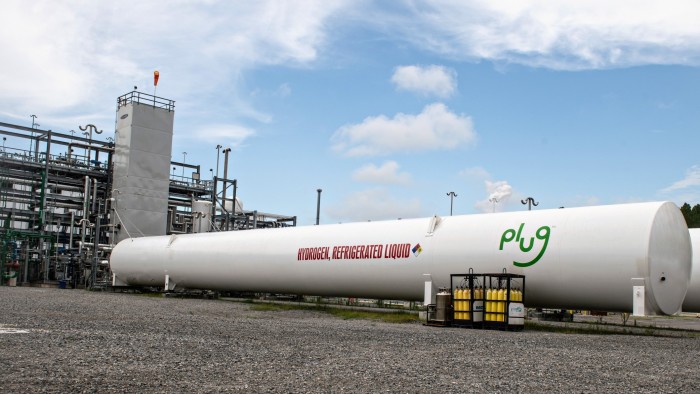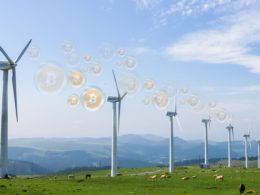Unlock the White House Watch newsletter for free
Your guide to what the 2024 US election means for Washington and the world
Joe Biden’s administration relaxed the criteria for green hydrogen producers to claim tax credits on Friday as it raced to help the struggling sector and secure its clean energy legacy ahead of Donald Trump’s inauguration.
The Treasury department has delayed stricter requirements for the sector by two years to 2030: from that year, green hydrogen developers will need to prove that their production is powered by renewables hour by hour instead of annually, in order to qualify for credits.
The change comes after a year of intense lobbying by developers who argued that the draft rules were too strict and would undermine the nascent industry. The start date for hourly certification is now aligned with the EU, a target for US clean hydrogen exports.
The Treasury is also allowing hydrogen produced using power from existing nuclear plants to qualify in its final rules, as long as the project averts a nuclear plant’s retirement. This expands from its draft rules that require developers to produce hydrogen from new clean energy projects, like solar or wind, that are connected to their regional grid.
“The extensive revisions . . . provide the certainty that hydrogen producers need to keep their projects moving forward and make the United States a global leader in truly green hydrogen,” said John Podesta, Biden’s senior climate adviser, in a statement.
The Inflation Reduction Act, President Biden’s signature climate law, included a $3-per-kilogramme tax credit for hydrogen production, transforming the US into an attractive destination for development. Green hydrogen, produced using renewable electricity, has potential as cleaner fuel for carbon intensive industries such as shipping and heavy transport.
However, environmental groups and analysts have said that unless there are strict rules, hydrogen production could rely on fossil fuels and add to emissions.
The wait for the tax credit rules, weak demand and threats from Trump to dismantle the IRA have all undermined confidence in the clean hydrogen industry in the past year, prompting a sell-off in shares and developers to pause projects.
In October, Plug Power confirmed to the Financial Times that it paused development on its $290mn green hydrogen project in New York, set to be the largest in North America. Marathon Petroleum, Fortescue and CNX have also stalled or pulled out of commitments to Biden’s $7bn hydrogen hubs programme.
“These tax credits do a lot to subsidise the production of hydrogen, but there also needs to be a demand for that hydrogen. Someone has to want to use it,” said Aaron Bergman, a fellow at non-profit group Resources for the Future. Last year, consultancy BloombergNEF estimated that only 6 per cent of US hydrogen projects had secured binding supply agreements.
Source link









